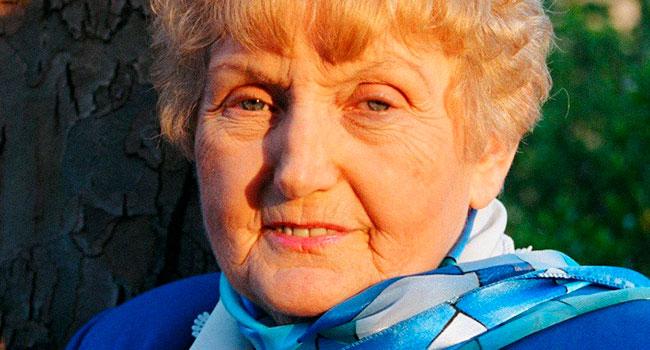 Holocaust survivor Eva Kor died in the summer of 2019 while in Poland doing one of the things she found most meaningful: touring a group of young people through the Auschwitz concentration camp.
Holocaust survivor Eva Kor died in the summer of 2019 while in Poland doing one of the things she found most meaningful: touring a group of young people through the Auschwitz concentration camp.
Her message remains: “Each of us has an important part to play in repairing the world. Be the change you wish to see.”
Kor was misunderstood by many because she chose to forgive sadistic experimental scientist Josef Mengele and other Nazis for what they did to her.
But this was only part of Kor’s journey in life and it is only part of her challenge to us.
Fellow Holocaust survivor and existential psychologist Viktor Frankl tells us that it’s vital to find meaning in our suffering.
For Kor, this meant forgiving. For others, it means teaching, embracing the life we have or simply learning to love again.
This is where we need to listen to our neighbours tell their stories of suffering and hear them with compassion. They will embrace the path they need to take and the world will be better for it.
Life is a journey and our perspectives can change. Kor spent much of her life wanting to put Mengele on trial for his crimes against her and other children, but after 50 years she found peace by forgiving him.
Perhaps this inward journey is the key to her message. We all have the capacity to bring reconciliation and healing to the world.
Kor’s friend, Holocaust scholar Dr. Michael Berenbaum, points out that forgiveness is much easier when certain elements are present. The person must request forgiveness from the people one has injured. There must be a recognition of the harm they’ve done, a confession of the iniquity and a resolution not to commit the hurtful act again. They promise to do better and seek to truly reconcile. Guilt is acknowledged and forgiveness is earned.
Berenbaum points out that as a Jew, he recognizes Germany’s effort to seek reconciliation for the Holocaust and move forward as a better country. Nations that don’t take these steps, however, are more likely to repeat their crimes.
When we truly listen to the stories of residential school survivors as well as the testimonies of Mengele victims like Eva Kor, we recognize there are haunting parallels.
In 2008, Prime Minister Stephen Harper officially apologized for Canada’s role in the residential school system and acknowledged the harm this caused to thousands and thousands of Indigenous children.
Harper’s discourse in Parliament that day was followed by an address from the late Jack Layton, leader of the New Democratic Party. He pointed out that the apology was only be the beginning. We have to do better as a country. There has to be an atonement.
If we don’t change, the deep wounds inflicted on generations of children will continue to cause suffering to our Indigenous neighbours and keep Canada from becoming the compassionate country we want it to be.
Atonement isn’t easy but it’s one of the most liberating actions a person or a nation can undertake. It has allowed Germany to go from a nation once feared, then despised, to one that’s admired and respected.
I can see the transformation that has occurred in me as educator and human since taking up Jack Layton’s challenge. It has brought healing to my spirit and I hope it has brought healing to my school, my community and my country.
Eva Kor didn’t give anyone a get-out-of-jail-free card for the suffering they caused. Her choice to forgive was one of self-liberation, and her message will always challenge us to bring forgiveness and healing to a broken world.
Troy Media columnist Gerry Chidiac is an award-winning high school teacher specializing in languages, genocide studies and work with at-risk students.
The views, opinions and positions expressed by columnists and contributors are the author’s alone. They do not inherently or expressly reflect the views, opinions and/or positions of our publication.


